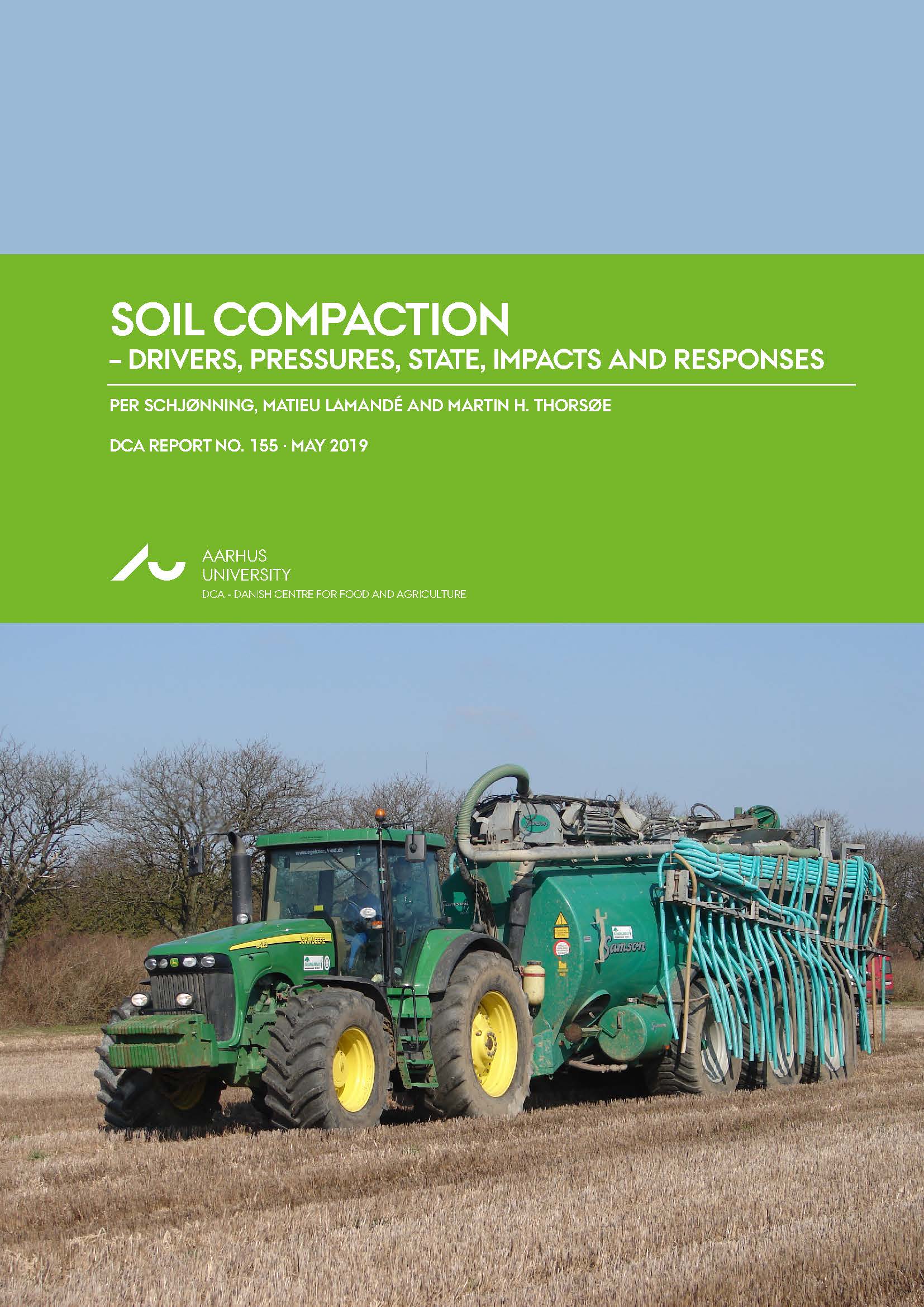DCA Publikationer
Soil Compaction
DCA rapport, nr. 155, 2019
Af Per Schjønning, Matieu Lamandé og Martin H. Thorsøe
 Traffic-induced soil compaction occurs when mechanical stresses from machinery exceeds the mechanical strength of the soil. During field traffic, significant stresses are transmitted to the subsoil. Danish arable fields are generally very dense in the subsoil. Compaction significantly affects soil functions and ecosystem services including crop yields. Compaction-induced reduction in soil water conductivity may increase surface runoff and loss of nutrients and soil sediments to the aquatic environment. Compaction of the subsoil may increase the risk of by-pass water flow, hence decreasing soils’ filter function for contaminants. Subsoil compaction is long-term or effectively permanent. Mechanical loosening of compacted subsoils is not a solution among others because of a severe risk of soil recompaction. There is lack of knowledge on biological tillage as an effective mitigation measure for severely compacted subsoils. The subsoil is increasingly at risk of compaction because modern farming includes a range of field operations with heavy machinery. Subsoil compaction is accumulating, persistent, and not directly visible. In addition, short-term cost-benefit analyses do not provide an incentive for management changes. This calls for public intervention. We recommend consideration of a general requirement for financial EU-support. Farmers should report their planned field traffic one year in advance. In order to increase farmers’ focus on the compaction threat, we recommend as a first step only a documented planning, while a later step might include a request of modifying the planned traffic in case the evaluation indicates significant compaction damage. We further recommend eleven potential measures that could be used for voluntary action (eco-schemes) to minimize soil compaction.
Traffic-induced soil compaction occurs when mechanical stresses from machinery exceeds the mechanical strength of the soil. During field traffic, significant stresses are transmitted to the subsoil. Danish arable fields are generally very dense in the subsoil. Compaction significantly affects soil functions and ecosystem services including crop yields. Compaction-induced reduction in soil water conductivity may increase surface runoff and loss of nutrients and soil sediments to the aquatic environment. Compaction of the subsoil may increase the risk of by-pass water flow, hence decreasing soils’ filter function for contaminants. Subsoil compaction is long-term or effectively permanent. Mechanical loosening of compacted subsoils is not a solution among others because of a severe risk of soil recompaction. There is lack of knowledge on biological tillage as an effective mitigation measure for severely compacted subsoils. The subsoil is increasingly at risk of compaction because modern farming includes a range of field operations with heavy machinery. Subsoil compaction is accumulating, persistent, and not directly visible. In addition, short-term cost-benefit analyses do not provide an incentive for management changes. This calls for public intervention. We recommend consideration of a general requirement for financial EU-support. Farmers should report their planned field traffic one year in advance. In order to increase farmers’ focus on the compaction threat, we recommend as a first step only a documented planning, while a later step might include a request of modifying the planned traffic in case the evaluation indicates significant compaction damage. We further recommend eleven potential measures that could be used for voluntary action (eco-schemes) to minimize soil compaction.